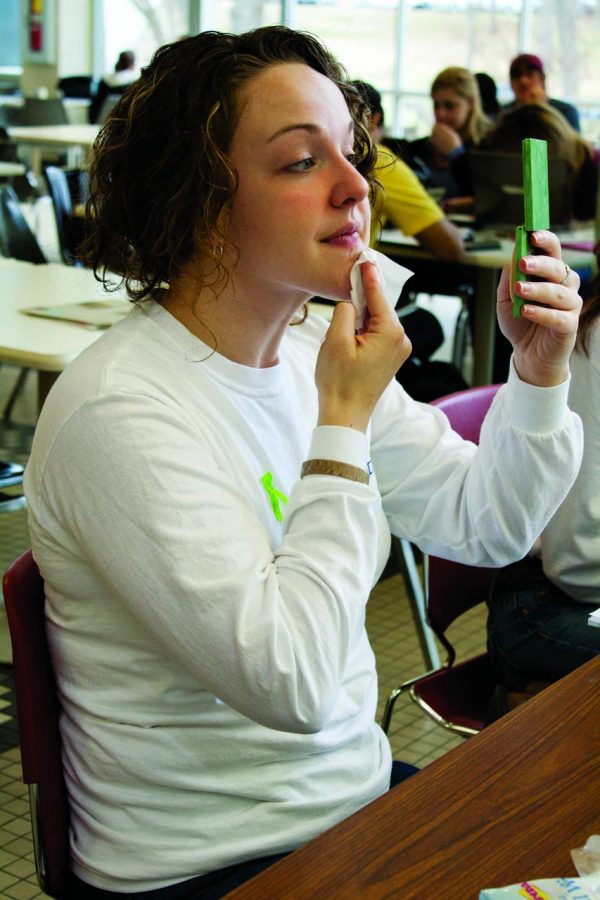Students uncover taboos about eating disorders
March 3, 2011
Eating disorders, such as anorexia, bulimia and binge eating, affect as many as 10 million females and 1 million males in the United States every year, which inspired UNA’s Student Counseling Services to host its second-annual Eating Disorders Awareness campaign entitled “It’s Time To Talk About It” last week during the National Eating Disorders Awareness Week.
“If it’s not the student who is directly affected by an eating disorder, it’s someone they know,” said Jennifer Berry, ALC. “Eating disorders are a disease that affect not only the person struggling with the disorder, but also the people who are involved with that person.”
Anorexia Nervosa, Bulimia Nervosa and binge eating are the three most commonly known eating disorders. According to the National Eating Disorders Association, anorexia includes having an abnormal fear of gaining weight, self-starvation and/or excessive weight loss, while binge eating includes binging and purging. Binge eating occurs when a person is impulsive and cannot control what they eat without resorting purge behaviors.
“The Eating Disorders Awareness campaign helps people be aware of what eating disorders are as a serious illness and of the treatments available,” Berry said. “Ten percent of college students are diagnosed with eating disorders, 40 percent have disordered eating habits and 90 percent are females dieting or restricting.”
The weeklong Eating Disorders Awareness campaign covered a variety of topics that pertain to UNA students of both genders. Men and women were asked to write their definition on art boards in the GUC Feb. 22, while a showing of “Intervention” was presented in the GUC later that evening.
A “Scale Bash” took place Feb. 23 where students were asked to donate and destroy their scales to demonstrate that men and women should not be controlled by the number of their weight. Women were asked to remove their makeup Feb. 24 to show their natural beauty. Students were also invited to take part in clinical screenings for eating disorders at UNA last week.
“This is a very important topic because so many college students don’t realize that not only should we continue to excel in our college activities, but also in the way we take care of ourselves,” said UNA student Bishop Alexander. “Our college years are so important because what we do between the ages of 18 and 30 usually determines the habits that we continually do for the remainder of our life.”











